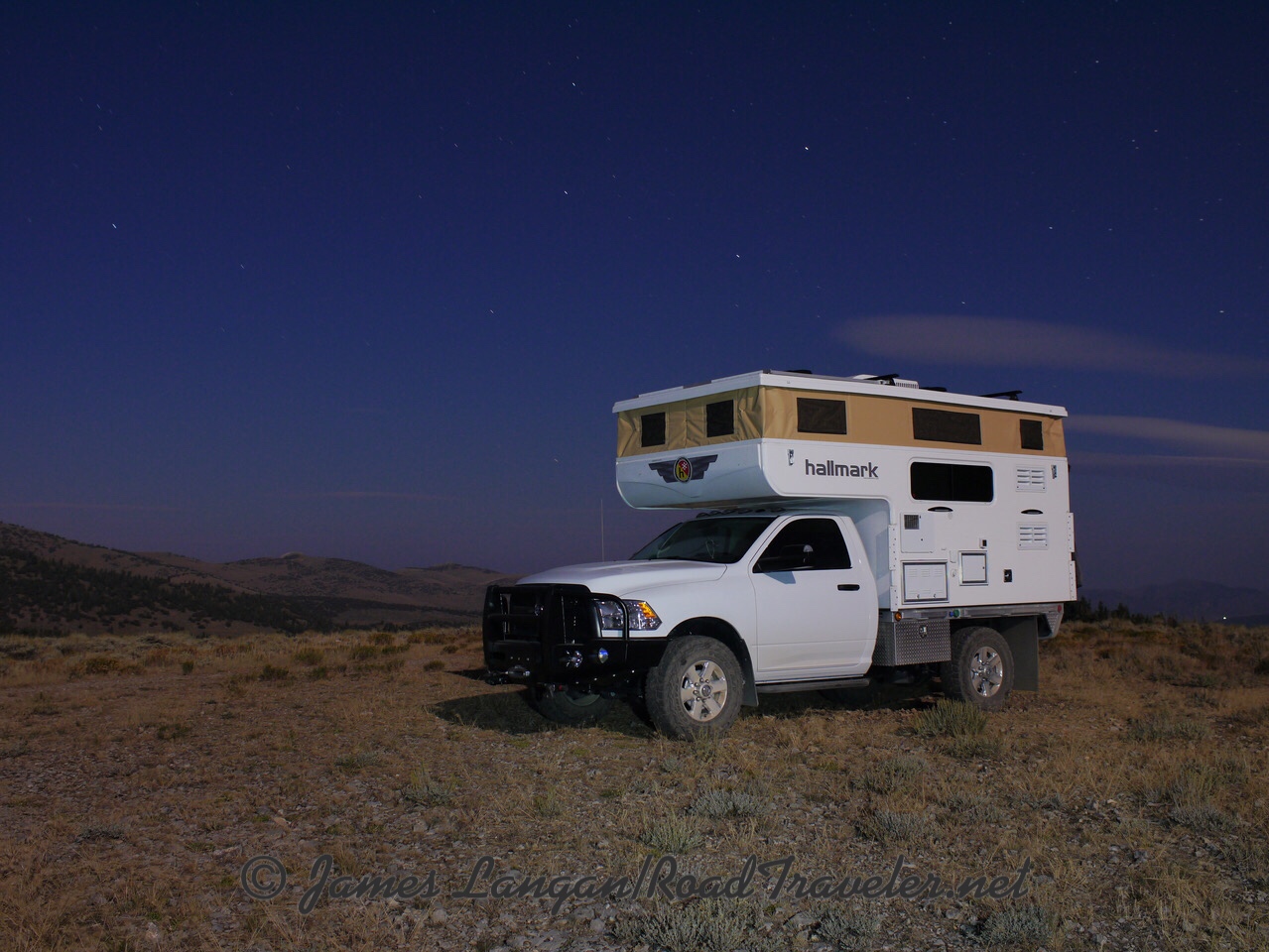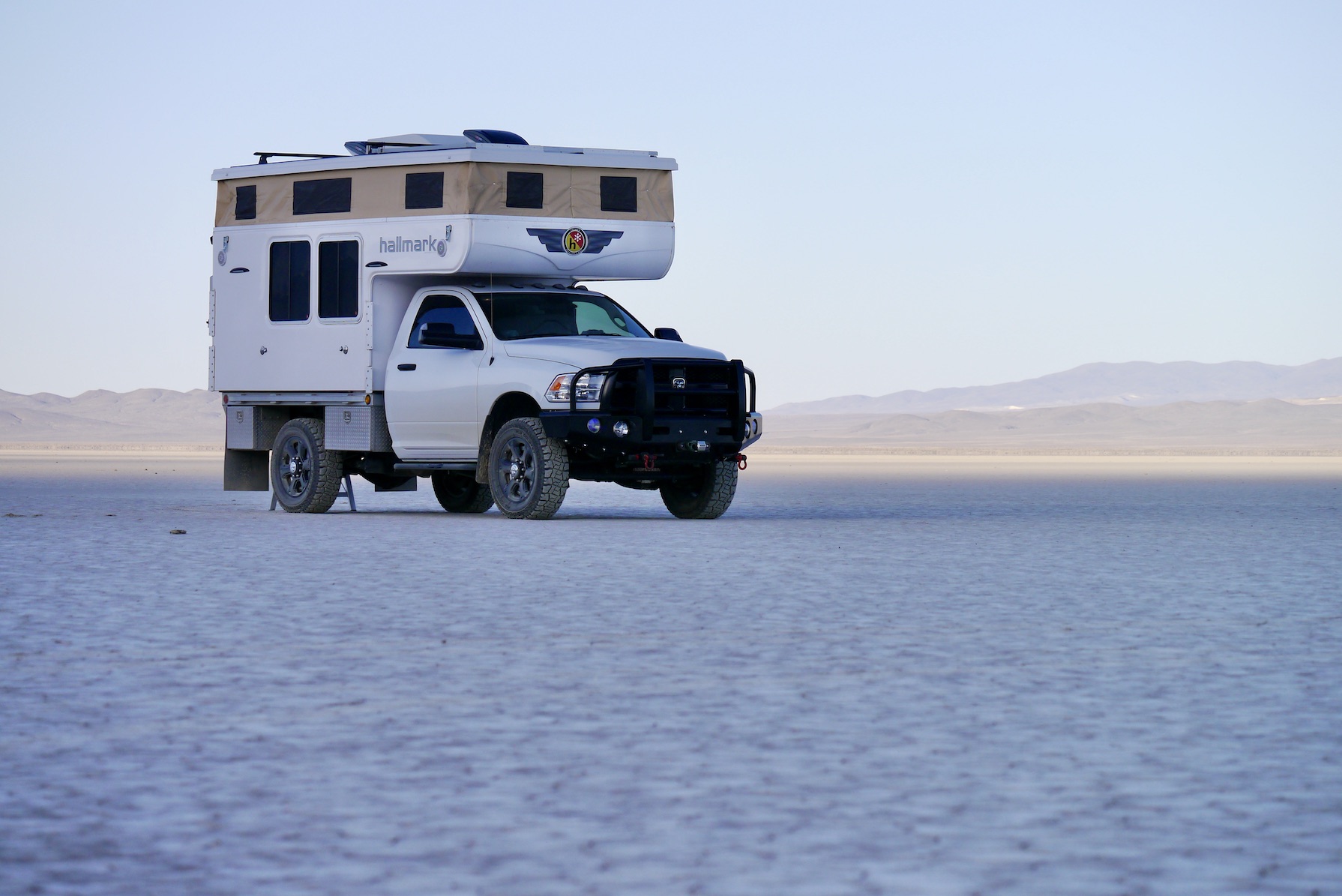Backgrounder
A recent Nevada Highway 95 trip from Northern Nevada to Southern Nevada, and back, a very familiar route, produced some interesting data. People often make contrary statements about shared fuel economy information, generally well intentioned but not always accurate, including:
1) My similar truck/camper does much better (or worse). 2) An aftermarket engine tune would produce superior results (doubtful but possible). I could write several such hearsay proclamations.
Let us remember that similar is not the same, and this includes engine tunes, programming, and power ratings. Modifying engine performance is not an option as long as I want to keep my emissions equipment on my truck and continue registering it in the zip code where I live. However, my 350 horsepower, G56 manual truck has plenty of torque and power, and if I wanted more I’d likely regear the differentials.
Now, let’s review some fuel economy 101.
Everything that is different can matter, including:
-Driver
-Tires
-Speed
-Engine output (also brand, configuration, etc.)
-Gearing
-Terrain/conditions
-Weight (less critical than many think, depending on the outfit)
However, the two big ones often not fully appreciated are:
–Engine speed: pumping losses
–Vehicle speed: aerodynamic losses
Engine pumping losses are of minimal concern for this rig. The 2017 Ram/Cummins has the tall factory 3.42:1 gears, a 6-speed manual transmission, and runs 35-inch tires, resulting in low rpm in overdrive.
The aerodynamics are horrible. This is a heavy-duty truck with a big winch bumper/grille guard, sliders, and a flatbed with mud flaps; these are important details. However, the frontal area and drag coefficient of the truck camper (and truck) are a huge factors.
It is possible to get similar (or better) mpg with a heavier truck and trailer combination that is more aerodynamic; that’s how critical wind load and speed are.
Fuel Economy Data
The test below was informal, if you want something more detailed, with additional focus on controlling variables, you’ll likely enjoy this post: Tread Matters
Southbound: Fernley to Beatty, Nevada
Vehicle: 2017 Ram 2500 Cummins/6-speed manual
Date: March 2, 2019
Distance: 295.6 miles (odometer corrected)
Cruising speed, where legal: 65 mph
RPM: 1,650
Approx. gross weight: 11,500 pounds
MPG: 13.47
Northbound: Las Vegas to Hawthorne, Nevada
Vehicle: 2017 Ram 2500 Cummins/6-speed manual
Date: March 4, 2019
Distance: 302.0 miles (odometer corrected)
Cruising speed, where legal: 63 mph
RPM: 1,600
Approx. gross weight: 11,500 pounds
MPG: 13.26
Speed Eats MPG
Because the terrain and conditions over Nevada Hiighway 95 have repeatedly given better fuel economy going southbound than northbound, I intentionally reduced my speed going north to try to limit the difference. It worked, two mph made a difference. My educated estimate is that at 65 mph, fuel economy would have been in the high twelves on the trip north, and going as fast a 70 mph would have droped mpg into the mid to low twelves.
Want a quick example of how much speed and conditions matter? The same outfit when it weighed less and was slightly more aerodynamic with the stock front bumper, cruising almost completely at a constant 75 mph on Interstate 80 across Northern Nevada, Elko to Reno, including maintaining 75 mph up and over mountain passes, and a bit of off-highway travel to camp, yielded 11.57 mpg over a distance of 300.4 miles. Considering the use and conditions, that was an appropriate result, inline what was requested from the chassis.

James Langan
Copyright James Langan/RoadTraveler All Rights Reserved
Resource linK:
